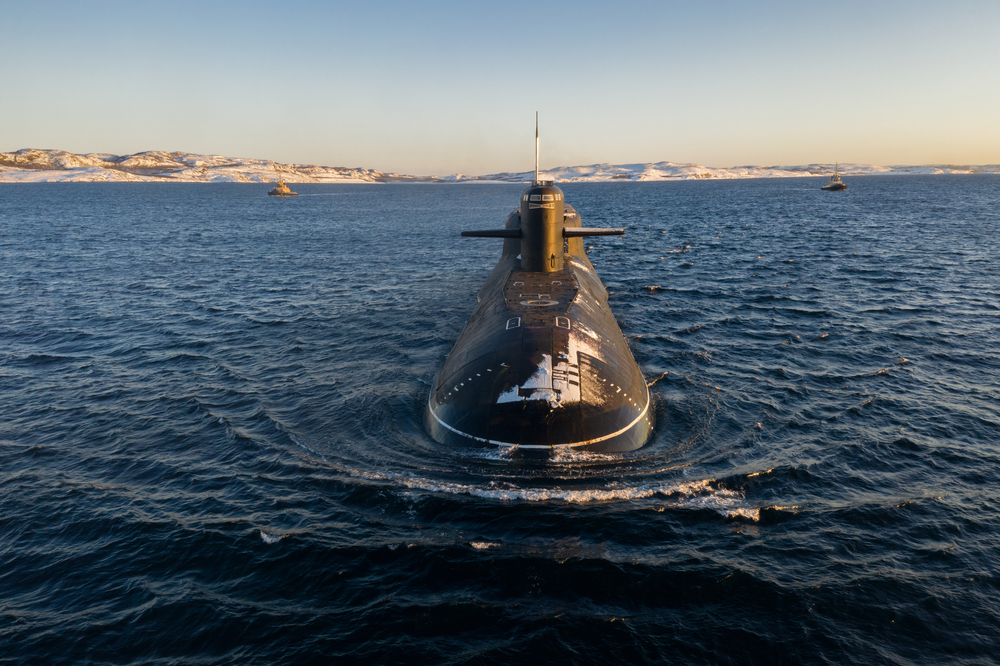Europe
Europe is described here in a geographical sense. It is not limited to the European Union, and includes, for example, the United Kingdom and the Balkans. It remains central to international relations.
Related Subjects

Taking the Pulse: Can Europeans Build Their Independent Extended Nuclear Deterrent?

Confronted with a U.S. disengagement and the Russian threat, Europeans are reconsidering their stance on nuclear deterrence. Given the capabilities of the French and British arsenals, can Europe develop an independent nuclear deterrent?
Kazakhstan and Eurasian Economic Integration: Quick Start, Mixed Results and Uncertain Future
Kazakhstan's economic integration with Russia and Belarus has been advancing at break-neck speed.

France and the EEAS: A give-and-take relationship
Based on interviews with diplomats from a representative cross-section of nine member states and members of the EEAS (European External Action Service) itself, the research findings of this EPIN Working Paper confirm long-standing traditions and member state perceptions of cooperation with European institutions.
Negotiating for a Malaysia-EU FTA: Contesting Interests from Malaysia's Perspective
Malaysia has shifted its focus from multilateral and regional to bilateral trade agreements due to the current doldrums in the Doha Round and the bandwagon effect from similar shifts in other countries.
Challenges and Opportunities of a EU-Taiwan ECA: A Review of Political-Economic Perspectives
Concerns over becoming marginalized in the course of East Asian economic integration are driving a proactive regional trade agreement (RTA) strategy on the part of Taiwan. Three factors explain this concern: Competing visions of economic integration in the region from both the United States and China, the success of Korea in concluding a large number of important RTAs, and the increasing number of overlapping agreements that crowd out countries and economies such as Taiwan that do not have proactive RTA strategies.
A EU-Japan Free Trade Agreement: Toward More Solid Economic Relations
The European Coal Market: Will Coal survive the EC's Energy and Climate Policy?
The European coal industry is at a crossroads. The European Commission (EC) Energy Policy by 2020, the 20/20/20 targets, is not favourable to coal:
a 20% decrease in CO2 emissions does not favour coal compared with natural gas, its main competitor in electricity generation;
a 20% increase in energy efficiency will lead to a decrease in energy/coal consumption;
a 20% increase in renewables will displace other energy sources, including coal.

National models of integration and the crisis of multiculturalism: a critical comparative perspective
How Does the Tea Party Compare with European Far Right Movements?
There is a rich history of far-right political parties in Europe. Long-standing parties such as the French Front National (FN), mostly marginalized since World War II, have enjoyed a resurgence since the 1980’s. Under the very recent leadership of Marine Le Pen, the FN has undergone a rejuvenation of its communication strategy and gained two seats in the National Assembly, the first time that the FN won any seats since the end of the proportional representation system in 1988. There are also many newer far-right parties in Europe, such as the Dutch Party for Freedom (PVV). The PVV, formed in 2006 by Geert Wilders, has become the third most popular party in the Netherlands and was until recently a member of the governing minority coalition.
Capacity Mechanisms : EU or National Issue? Are Capacity Remuneration Mechanisms Helping to Build the Market or Just a Symptom of What Does Not Work ?
In a competitive energy system, generation investment choices are let to investors. It is then the responsibility of the market actors to invest and ensure peak, medium and base load generation, based on market perspectives and trends. If through actors" investments the stability of the system cannot be ensured (because, for example, peak generation is not sufficient to satisfy demand), some measures have to be taken. These can have economic and system integrity impacts on neighboring systems, especially if they are connected. This is precisely what is happening in the European electricity market.
Support independent French research
Ifri, a foundation recognized as being of public utility, relies largely on private donors – companies and individuals – to guarantee its sustainability and intellectual independence. Through their funding, donors help maintain the Institute's position among the world's leading think tanks. By benefiting from an internationally recognized network and expertise, donors refine their understanding of geopolitical risk and its consequences on global politics and the economy. In 2024, Ifri will support more than 70 French and foreign companies and organizations.








